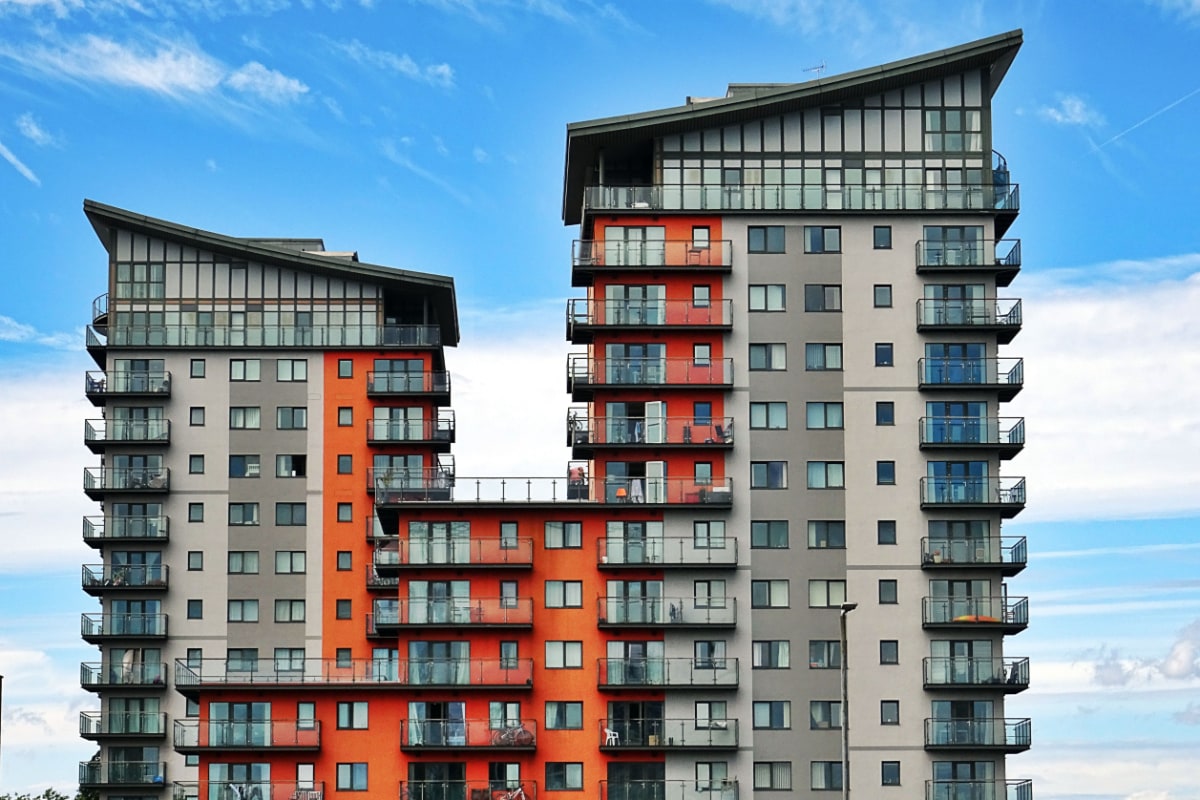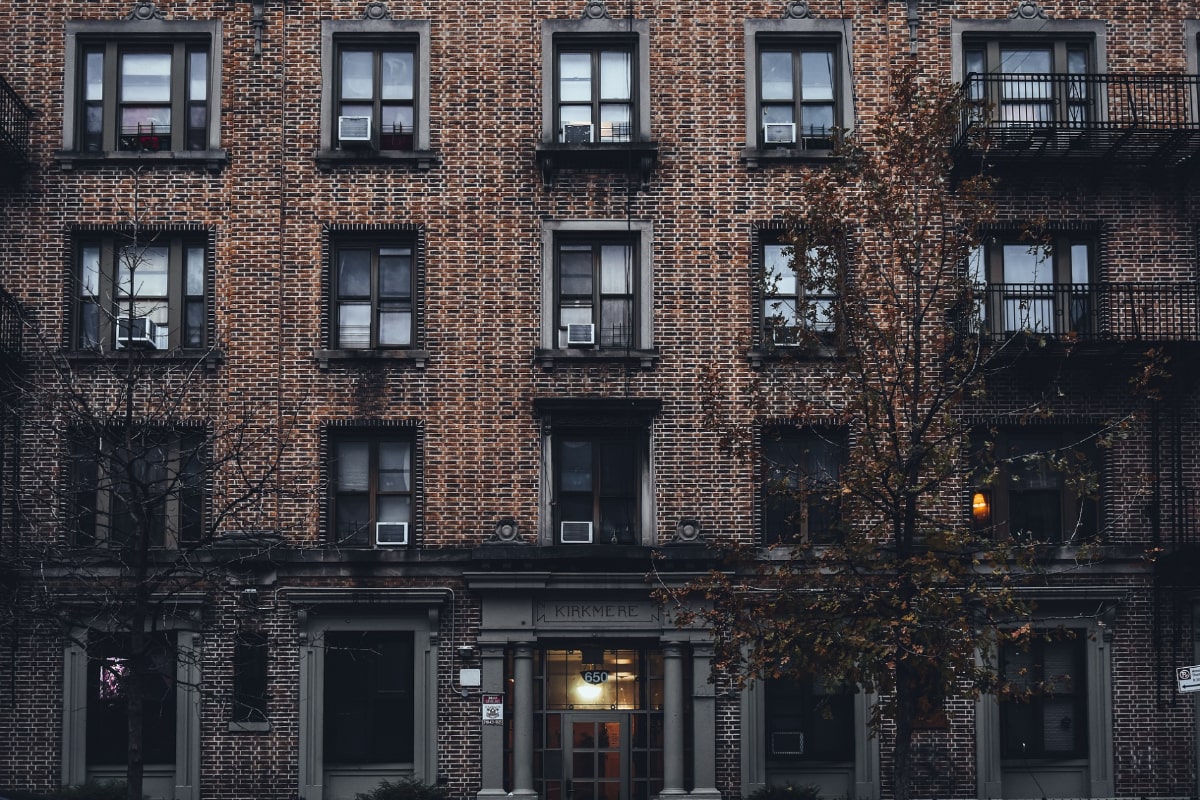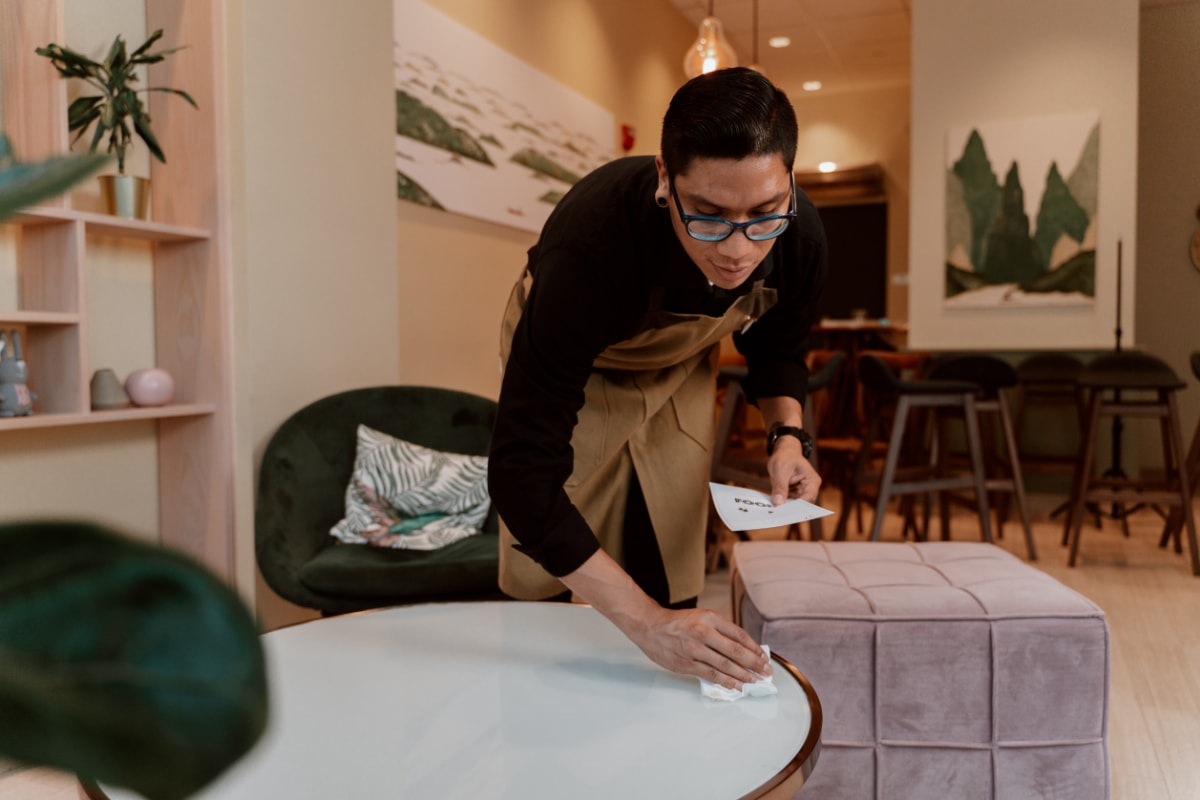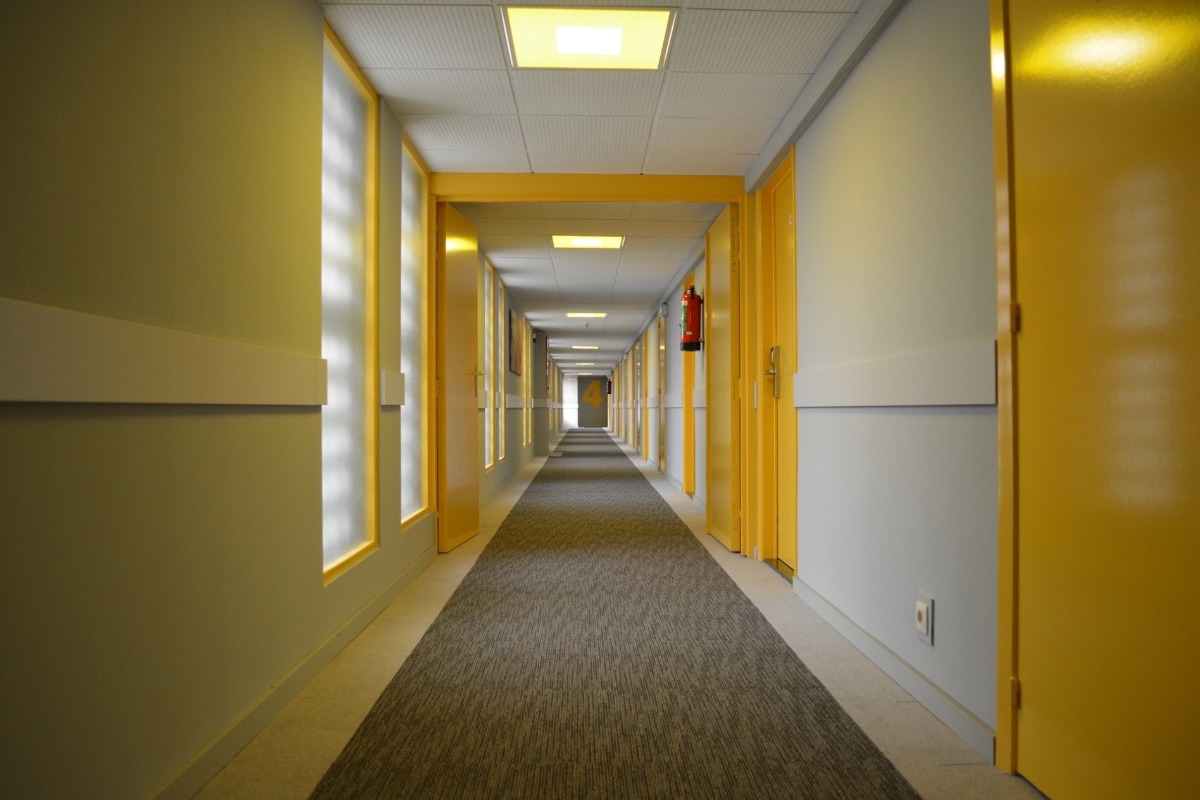You may have heard the term building super when searching for an apartment but not know what the term means. This article will cover what a building super is, the types of supers you may encounter, their responsibilities, and how to even become a super yourself.

What is a building super?
Sometimes called a building superintendent or resident manager, building supers are the maintenance managers at apartment buildings of all sizes. Whether you live in a co-op or a suburban apartment, your building likely has a building super. In fact, most cities require that every apartment building hires a super to make sure that the building is well-maintained.
Depending on the size of your apartment building, you may have a visiting super, a live-in super, or an executive super. Live-in and executive supers are a huge selling point for apartment buildings that have them because they live on-site or within a block or two of the building they service. That means they’re there to address maintenance emergencies almost immediately, instead of waiting a few days for the visiting super to show up.
The cost of a building superintendent is almost always included in your rent or maintenance fees, whether you’re looking for a high rise in New York, NY or a studio in Nashville, TN. However, there are different types of supers with different roles and responsibilities.
Types of supers
There are three main types of building superintendents. The type of super your building has usually depends on how many residents live in the building. In fact, certain cities require that buildings of a certain size hire a certain kind of apartment superintendent to ensure the building is run well.
Visiting or traveling super
A visiting super, or traveling super, usually works for smaller apartment buildings with 10 units or fewer. Since buildings of this size don’t require as much maintenance as a high-rise with 200 residents, your landlord may hire a visiting super on an as-needed basis. They most often work part-time, rather than full-time.
One of the downsides of having a traveling super is that they don’t live in your apartment building. So, they won’t necessarily be there right away when a pipe bursts or your water heater gives out.
And, they may not be able to help if the property manager has to hire a contractor or other maintenance worker. In buildings with more residents, the super may hire and/or supervise contractors or handypeople to make sure the job gets done right. But visiting supers won’t necessarily be able to help with that, since they are part-time.
Live-in super
Live-in supers typically work in larger apartment buildings than a visiting or traveling super. Their buildings usually house between 10 and 50 residents.
As you may have guessed from the name, a live-in super lives in the apartment building where they work. Most often, they live in a basement or ground floor unit for free or a reduced rate. They typically have a workshop in the building as well. In some cases, the live-in super is allowed to live very close to the building where they work instead of in the building. They may also receive a wage or salary in addition to an apartment.
Live-in building superintendents are handy to have around because they are typically on-call round the clock, everyday of the year. That means that, if your apartment building is broken into, or the garage door breaks overnight, someone will be there almost immediately to assess the problem and begin repairs.
In most mid-size apartment buildings, a live-in super handles nearly all of the repairs for a building, rarely hiring out tasks to other maintenance workers. Generally, the apartment building’s only employees will likely be the super and the landlord. In some select cases, live-in supers may even take on some landlord responsibilities, like giving apartment tours to prospective tenants, if the landlord doesn’t live on-site.
Executive superintendent or resident manager
Larger apartment buildings or highrises may hire an executive superintendent, or resident manager, to take care of the building. These buildings have more than 50 residents, which means that the building may hire other full-time maintenance staff to make sure the building is always running smoothly.
Unlike live-in building supers, the executive super may hire out contractors for many maintenance tasks. They may also hire and supervise a staff of maintenance workers that work for the apartment building full-time. In other words, executive supers may provide more managerial help than maintenance help.
In addition to supporting contractors and other maintenance staff, a resident manager may help out the doorperson, concierge, and other building employees.
Like a live-in building superintendent, a resident manager probably lives in or near the building and is on-call round the clock to make sure any complaints are handled promptly.

What is the difference between a super and a doorperson?
At many high-rise and luxury apartments, you’ll find both a doorperson and a building super. You might even find them working together in the same place. So how are a doorperson vs. live-in super different? And more importantly, what can each of them do for you?
Super
The apartment superintendent is responsible for all things maintenance-related, making sure garbage is taken out and picked up, fixing leaky faucets, touching up apartments before new residents move in, and so on.
As mentioned earlier, building supers most often live in the building where they work, or they live very closeby. And, they may manage a staff if they work at a larger building. That means they will likely be the one managing the building’s doorperson.
Doorperson
While the building super provides maintenance assistance and sometimes security support, a doorperson provides security assistance and courtesy for residents.
Doorpeople usually have two primary jobs. First, they receive and secure any packages that arrive at the building. Second, they greet and screen any people who enter the building. They know who is allowed to enter the building and when.
Rather than completing jobs around the apartment building, they typically stick close to the front entrance. And they rarely live in the building. Unlike a building superintendent, a doorperson won’t help with maintenance or repairs, except by letting the contractor into the building. Also, they don’t hire and supervise employees like a building super.
Having a doorperson is useful for residents because it’s nearly impossible for any deliveries to be stolen. And, it’s very unlikely that someone who isn’t allowed to enter the building will be allowed to enter. A doorperson is also useful for property managers because random contractors and other people won’t be allowed in. That means they won’t be slipped an unexpected bill from an ambitious window cleaner.
Responsibilities of a super
Building supers complete a number of important tasks every week, designed to keep the building running smoothly, such as:
Taking out the garbage
More complicated than it sounds, a building superintendent is responsible for managing the garbage, recycling, and compost, if your building has it. They have to be aware of:
- The garbage pick-up schedule, including when they are allowed to set containers out and when they will be emptied
- How to schedule bulky item pick-ups
- How to schedule extra trash pick-ups for when it is overflowing
- Which items are recyclable and compostable
- Building sanitation guidelines
In some cities, apartment buildings can actually be fined if they set garbage containers out too early. It is the building super’s job to make sure the building doesn’t receive a fine and that all waste gets picked up before it begins to overflow.
Cleaning common areas
Building supers also clean common areas or hire someone to clean common areas, like hallways, lobbies, mail rooms, and more. For example, a building super will:
- Mop hard flooring
- Vacuum carpet
- Stain treat as necessary
- Dust windows and surfaces
- Clean windows and surfaces
Depending on your building, there may be more to do, which the building super also manages.

Shoveling snow
One huge plus of living in an apartment during the winter months is that you won’t have to shovel your driveway or walkway — the building super will do it for you. They will usually get up before everyone else in order to ensure that the surfaces are walkable or driveable when people leave and come home from work.
Addressing maintenance issues
Instead of having to find and hire a contractor when you have a maintenance issue in your apartment, the building super will fix it for you or find someone else who can. Common maintenance issues that supers address include:
- Apartment ceiling leaks or other leaks
- Broken appliances, like microwaves, washers, and dryers
- Broken mailboxes
- Clogged drains (some buildings charge for hair clogs, so you might want to learn how to deal with those yourself)
- Electricity issues
- Leaky faucets
- Burnt out lightbulbs
- Squeaky doors
- Toilet issues
Resolving tenant issues
If you find yourself locked out of your apartment, your live-in super should be your go-to person. They can also help you out if your key fob breaks or stops working, or if the lock to your apartment or other doors in the apartment building doesn’t work anymore.
Building supers sometimes resolve other tenant problems, such as complaints about noisy neighbors and illegal pets. So, not only does your building superintendent have to be great at fixing appliances, they also have to have great communication skills.
Managing apartment unit turnover
After one tenant moves out and before the next tenant moves in, building supers will do as much as they can to spruce up the apartment for the new tenant. Common changes or improvements they’ll make typically include:
- Cleaning
- Fixing broken appliances
- Painting
- Replacing old appliances
- Spackling and painting over any holes in the wall
- Testing and potentially replacing smoke and carbon monoxide detectors
- Testing key fobs and keys (or keyless entry)
- Updating appliances
- Updating lighting
- Updating locks
- Updating tiles, grouts, and other surfaces
It’s important to note that building supers don’t decide which applicants get to move into the building, even though they prepare for new residents and even give tours to prospective tenants. Screening applicants is typically a property manager’s job.
Communicating with the landlord
The building super and landlord are always in close communication with each other. This is because the apartment superintendent is the eyes and ears of the property, while the property manager is the one who typically manages the budget and communicates with the property management company.
For instance, if a building superintendent finds that a resident has a pet that isn’t allowed in the building, they will let the property manager know and the property manager will handle it according to building policy. The building super will also keep the landlord updated about maintenance needs, especially expensive ones like HVAC, plumbing, and structural issues, to make sure the building’s budget stays on track.

How to become a super
If you’re someone who loves to take on new tasks every day and work with your hands, you may be a great building superintendent. And it doesn’t pay too badly either. In 2022, the average apartment superintendent salary is around $50,000 per year.
Probably the most important thing to do before applying to apartment superintendent jobs is to get hands-on experience in a variety of trades. You’ll need to know a lot about plumbing and cosmetic repairs. And, you’ll need to know at least enough about HVAC and other trades to hire a contractor to complete those projects. An educated building super can help an apartment building get the job done right by hiring a knowledgeable and efficient contractor.
The final say about supers
As you’re deciding on your next apartment, you may wonder if you really need a live-in super (which buildings often charge more for) or if you’re fine with a part-time super. The decision is really up to you and your budget.
If it’s an option for you, building supers can be super helpful to residents and property managers alike. Especially if you have a live-in super or executive super, they or someone from their team will be there right when you need them. Plus, because they provide managerial help to landlords, they can make the whole building run a little more smoothly, making your rental experience that much better.
The post What is a Building Super and What Are They Responsible For? appeared first on Redfin | Real Estate Tips for Home Buying, Selling & More.
